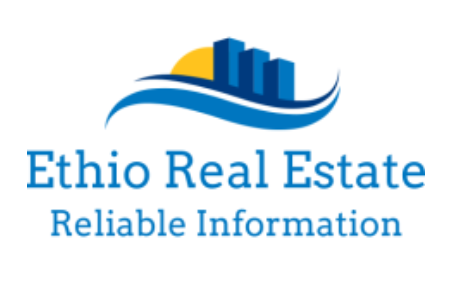Anyone who has ever bought a property in Ethiopia knows the process is convoluted and fraught with risks. In addition to being painful for buyers and sellers, the government also misses out on collecting the proper amount of tax as well as accurate insight into the market. The opaque nature of the process invites scrupulous actors, such as unethical brokers and fraudsters. During my 15 years of experience in the industry, first as an investor and then as a developer, I have witnessed and experienced the full extent of the problem. I also had a chance to see how the industry is managed in other countries, such as Kenya, the UAE, and the USA. Based on my experience, I would like to propose a five-point plan to reform the industry, making it transparent, fair, and profitable for everyone involved.
- Establish an independent government entity in each region of the country to regulate and supervise the industry. Similar to the Ethiopian Capital Markets Authority, it could have a name such as Addis Ababa Real Estate Authority. It will be responsible for drafting regulations, licensing various actors in the industry, enforcing rules, and educating the public. Under this authority, various offices would be established to license and oversee brokers, escrow agents, surveyors, etc… These professionals would be essential in making the whole buying and selling process transparent, legal, and overall less painful. For example, whenever someone signs a purchase agreement at DARA, the buyer must indicate that he has paid the entire amount of the price. How is it possible that the buyer will pay the entire amount before the agreement is signed? This is usually done through a very complicated arrangement fraught with risk. If a licensed lawyer was acting as an escrow agent and managing the process, there would be no need for such risk-taking. The authority would also oversee real estate broker associations, which could be a member-funded entity that would advocate on behalf of brokers.
- Reduce the property transfer tax to no more than 2% of the value of the property. In the current model, real estate transactions are basically an underground economy. People go to great lengths to avoid paying the 6% transfer tax. Whenever someone is selling real estate, there are two agreements. The first is the unofficial agreement where the real price of the property is indicated, and the second is the official agreement where a much-reduced price is indicated. This has several problems, beginning with the fact that it is against the law. Second, it makes it impossible to collect and produce accurate statistics. Third, the government ultimately collects much less than it should. Fourth, it exposes buyers and sellers to fraud. And finally, it makes it impossible to have a professionally managed process. If the tax was more reasonable, most people would choose to pay and have everything done by the book. This would facilitate a professionally managed process whereby lawyers can act as escrow agents and accurate information is collected by the government, giving them useful insight into the market. It would also limit the role of brokers in the actual buying and selling process, which is a source of much pain for buyers and sellers.
- Pass a comprehensive regulation to protect consumer rights: Currently, the real estate industry is operating like the Wild West. People buy without knowing the full extent of the risks they are taking. Unethical brokers and developers collude to trick consumers into signing a purchase agreement with teaser prices and opaque conditions. There should be restrictions on how and what brokers and developers can advertise. Purchase agreements should have a minimum set of conditions to make sure they are transparent, accountable, and liable for any failures.
- Educate and License brokers: Many Ethiopians report that real estate transactions are painful, in no small part because of the conduct of commission agents. Anyone can basically become a broker, with no education or experience required. In most countries, becoming a broker requires taking courses, passing exams, getting licensed, and being insured. Once a real estate board or authority is established, all brokers should be required to have a minimum amount of education, pass an exam, and get licensed. Optional insurance against errors, omissions, and fraud leading to monetary loss would make the agent more credible.
- Collect and publish detailed statistics on regular basis: Proper and accurate statistics is crucial for governments and regulators. In the current model, it is impossible to collect accurate statistics since most people do not report the actual price of a property they just bought. If the transfer tax was more reasonable, people would choose to report the actual price, which would allow governments to collect and publish these statistics. These statistics would be useful to gauge the health of the industry as well as assess the need for further regulations.
